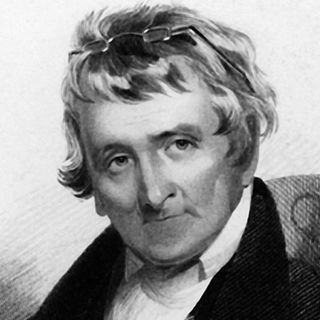A Quote by Cyprian
If, in the case of the worst sinners and those who formerly sinned much against God, when afterwards they believe, the remission of their sins is granted and no one is held back from baptism and grace, how much more, then, should an infant not be held back, who, having but recently been born, has done no sin, except that, born of the flesh according to Adam, he has contracted the contagion of that old death from his first being born. For this very reason does he [an infant] approach more easily to receive the remission of sins: because the sins forgiven him are not his own but those of another
Quote Topics
According
Adam
Afterwards
Against
Another
Approach
Back
Baptism
Because
Been
Being
Believe
Born
Case
Contagion
Death
Does
Done
Easily
Except
First
Flesh
Forgiven
God
Grace
Granted
Having
Held
Him
His
How
How Much
Infant
More
Much
Old
Own
Reason
Receive
Recently
Remission
Should
Sin
Sinners
Sins
Then
Those
Very
Worst
Related Quotes
Every soul that is born into flesh is soiled by the filth of wickedness and sin. . . . In the Church, baptism is given for the remission of sins, and, according to the usage of the Church, baptism is given even to infants. If there were nothing in infants which required the remission of sins and nothing in them pertinent to forgiveness, the grace of baptism would seem superfluous
It is this one Spirit who makes it possible for an infant to be regenerated . . . when that infant is brought to baptism; and it is through this one Spirit that the infant so presented is reborn. For it is not written, 'Unless a man be born again by the will of his parents' or 'by the faith of those presenting him or ministering to him,' but, 'Unless a man be born again of water and the Holy Spirit.' The water, therefore, manifesting exteriorly the sacrament of grace, and the Spirit effecting interiorly the benefit of grace, both regenerate in one Christ that man who was generated in Adam.
Baptism is just as essential to salvation, as Faith and Repentance. Without being immersed in water no man can enter into the fullness of Celestial glory: for baptism is instituted for the remission of sins; and if a person does not take the necessary steps to obtain pardon of sins, of course, he cannot be saved in the kingdom of God.
Baptism by immersion for the remission of sins is an essential covenant to make with the Lord. Faith and repentance precede this ordinance. Confirmation and the gift of the Holy Ghost follow baptism. Acceptance of these first principles and ordinances may obtain for us a remission of our sins and assure our salvation. In the ordinance of the sacrament, we regularly renew this and other covenants, and by complying with our part of the covenant, we receive the Spirit of the Lord to be with us.
You see how many are the benefits of baptism, and some think its heavenly grace consists only in the remission of sins, but we have enumerated ten honors [it bestows]! For this reason we baptize even infants, though they are not defiled by [personal] sins, so that there may be given to them holiness, righteousness, adoption, inheritance, brotherhood with Christ, and that they may be his [Christ's] members
What an unbearable creature he must have been in those days--and yet in those days he had been comparatively innocent. That was another mystery: it sometimes seemed to him that venial sins--impatience, an unimportant lie, pride, a neglected opportunity--cut you off from grace more completely than the worst sins of all. Then, in his innocence, he had felt no love for anyone; now in his corruption he had learnt.
... the Lord Jesus said, 'To those who are in bonds, Come out, and to those who are in prison, Go forth' (Isa. 49:9); so your sins are forgiven. All, then, are forgiven, nor is there any one whom He has not loosed. For thus it is written, that He has forgiven 'all transgressions, doing away with the handwriting of the ordinance that was against us' (Col. 2:13-14). Why, then, do we hold the bonds of others, while we enjoy our own remission? He, who forgave all, required of all that what every one remembers to have been forgiven to himself, he also should forgive others.
A bath in Ganges undoubtedly absolves one of all sins; but what does that avail? They say that the sins perch on trees along the banks of the Ganges. No sooner does the man come back from the holy waters that the old sins jump on his shoulders from the trees. The same old sins take possession of him again. He is hardly out of the waters before they fall upon him.
Our justification from sins takes place at the point of saving faith, not at the point of water baptism, which usually occurs later. But if a person is already justified and has sins forgiven eternally at the point of saving faith, then baptism is not necessary for forgiveness of sins nor for the bestowal of new spiritual life. Baptism, then, is not necessary for salvation. But it is necessary if we are to be obedient to Christ, for he commanded baptism for all who believe in him.
Baptism is a sign to God, to angels, and to heaven that we do the will of God, and there is no other way beneath the heavens whereby God hath ordained for man to come to Him to be saved, and enter into the kingdom of God, except faith in Jesus Christ, repentance, and baptism for the remission of sins, and any other course is in vain; then you have the promise of the gift of the Holy Ghost.
Nothing can tend so much to humble us before the mercy and justice of God as the consideration of His benefits and our own sins. Let us, then, consider what He has done for us, and what we have done against Him; let us call to mind our sins in detail, and His gracious benefits in like manner, remembering that whatever there is of good in us is not ours, but His, and then we need not be afraid of vainglory or of taking complacency in ourselves.


































